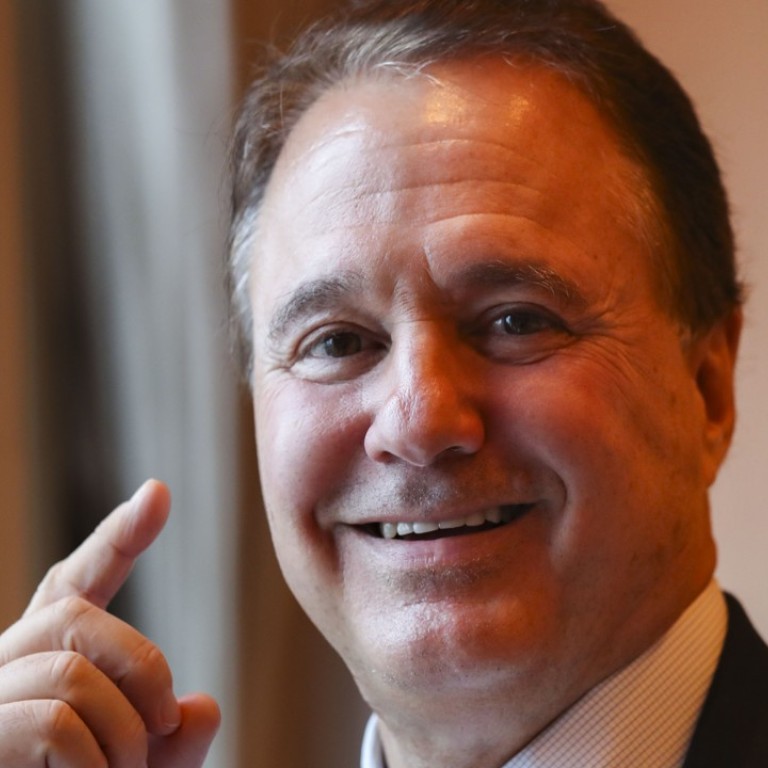
Bain Capital’s Stephen Pagliuca sees lower exit multiples globally, but Japan remains a bright spot
Bain’s US$3b Asian fund is looking at 15-16 companies in Asia and Australia
Record high asset valuations, a crowded market with more managers seeking to put capital to work have combined to make deal-sourcing challenging for private equity sponsors, said Stephen Pagliuca, co-chairman of Bain Capital.
That might sound overly humble for a private equity investment firm with total asset size of US$39.75 billion, which realised US$87 billion revenue from portfolio companies in 2016. But Pagliuca said private equity investors can no longer pin their hopes high on selling their investments at high valuation multiples of the portfolio company’s earnings.
A sustained period of loose monetary policies in Europe and US has resulted in companies’ Ebitda (earnings before interest, depreciation and amortisation) multiple rising to record high levels. Hence, private equity firms need to grapple with the reality of exiting their investments at lower multiples than the levels they bought them at.
“We are underwriting deals to flat or even lower exit multiples, which means that we need to find companies where we genuinely think we can grow revenues and earnings to make up for lower exit multiples,” said Pagliuca.
A prominent figure in the private equity space, who also co-owns the successful NBA franchise Boston Celtics, Pagliuca said his investment team also go after companies that have a strong presence in the consumer sector.
In 2016 June Bain Capital bought into South Korean cosmetic skincare maker Carver Korea, eyeing the company’s well-received products that sold well in China. Bain Capital subsequently sold the business to Unilever in September 2017 at a profit.
Bain Capital’s third dedicated Asian fund, which raised US$3 billion in 2015, was targeting to invest in 15-16 companies across China, South Korea, India, Japan and Australia. Average investment size of its portfolio companies was between US$100 million and US$400 million.
Pagliuca did not specify whether he saw specific opportunities in China’s sprawling internet and technology sectors. But he noted that with the further opening up of China’s financial services sector to foreign ownership it “has all the ingredients to enjoy higher growth than many markets for a long period of time”. Pagliuca is one of the speakers at the AVCJ Private Equity & Venture Forum in Hong Kong, which ends November 17.
The strategy for the Asian fund focuses on opportunities that fit into what he calls “deal archetypes” – those that allow Bain Capital to grow and transform a company by acquiring a competitor, gaining new customers, developing new products and expanding to new geographies.
China has all the ingredients to enjoy higher growth than many markets for a long period of time
Japan seems to have provided such opportunities, as industry players say the market has become more receptive to private equity investment of late. However, Bain’s tender offer for Asatsu-DK (ADK), Japan’s third largest advertising agency, has also highlighted the challenges facing financial sponsors.
In October Bain Capital launched a US$1.3 billion offer for ADK, in which UK advertising giant WPP holds a 24.7 per cent stake. Bloomberg reported this week quoting WPP that “Bain has significantly undervalued ADK, its assets and future opportunities”, and hence, does not intend to accept the tender offer.
In September, Bain Capital also led a consortium in acquiring Toshiba’s chip unit in a US$18 billion deal. However, San Jose, California-based Western Digital, Toshiba’s joint venture partner, has launched legal challenges to block the deal.
Still, Pagliuca was hopeful on the Toshiba deal’s completion, adding he saw opportunities in communications, technology and advertising companies in Japan.
“With Abenomics and efforts to modernise the economy ... corporates are more open to divestiture as they focus on their core strengths. That makes Japan a more attractive market for financial sponsors.”

